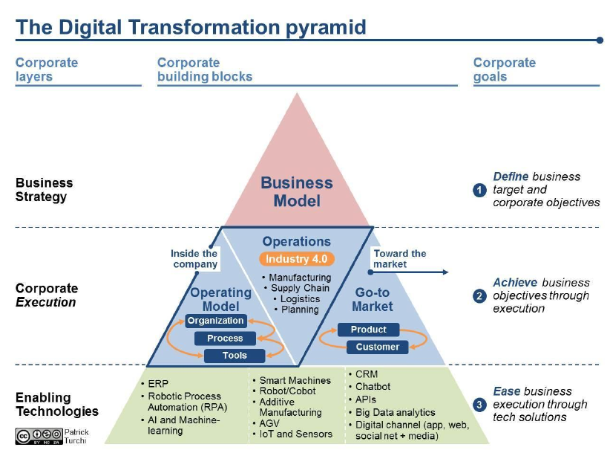Digital Transformation Is the Answer to Disruptive Innovation, Part 1
Increasingly often, digital transformation is seen as the most important trend of our times. It contributes to revolutionary changes across industries, influencing processes and business models, as well as work environments and communication within companies.
We have written two articles about digital transformation in order to answer the following questions:
- What is disruptive innovation?
- What is the definition of digital transformation and what are its characteristics?
- What is the impact of new technology on the process of digital transformation?
What is disruptive innovation?
Just a few years ago, there were still many companies that had been following the same business model for decades. It seemed that services such as hospitality and taxi companies, which had not changed for 100 years, would keep growing.
New companies pursuing other values appeared inside industries, developing services through innovation (e.g. process digitization) and entering various market segments but they played by the same rules. They only used information technology to improve existing processes.
Then players emerged who used disruptive innovation to redefine the rules of the game. They offered cheaper and lower-quality services (e.g. Uber and its successors in the taxi industry, and Airbnb in the hospitality market) but many customers found them good enough. This is not unique, as such “battles” between companies have always been waged. Existing players will perhaps manage to defend their turf, but it does not change the fact that such cases are becoming more frequent and things are changing faster. Most of the changes stem from technological innovation. The is not disruptive in itself, but is an important enabler of a new business model.
For more on disruptive innovation, see Clayton Christensen’s Disruptive Innovation Explained (Harvard Business School).
Definition and characteristics of digital transformation
So what is digital transformation if it’s not a new technology?
It is a holistic process. Changes in a company take place at various stages, from the business model to internal operations to management and, finally, to working with customers and suppliers while taking advantage of emerging technological innovations.
Patrick Turchi’s digital transformation pyramid is a useful model for understanding the idea of digital transformation. If you want to carve out a space in a market where innovation is happening at a rapid pace, it is essential to continue reorganizing your organization while focusing on three layers: business strategy, execution and enabling technology.
By definition, digital transformation applies to existing organizations. For new organizations, the pyramid is built from scratch.
Existing players have to keep adapting to changes in order to protect their market share from new competitors. This is done by creating a high barrier to entry or attacking less nimble and slower players. Transformation can also involve creating a new business model where there is less competition, which means higher margins.

Source: https://www.thedigitaltransformationpeople.com
In the part 2 of this article on digital transformation, you will find answers to the following questions:
- What are the characteristics of the three corporate layers of digital transformation?
- How impotent are new solutions and technology tools, and how do they affect the digital transformation process?
If you want to learn more about digital transformation in the key business areas, we invite you to take a look at our offer.








